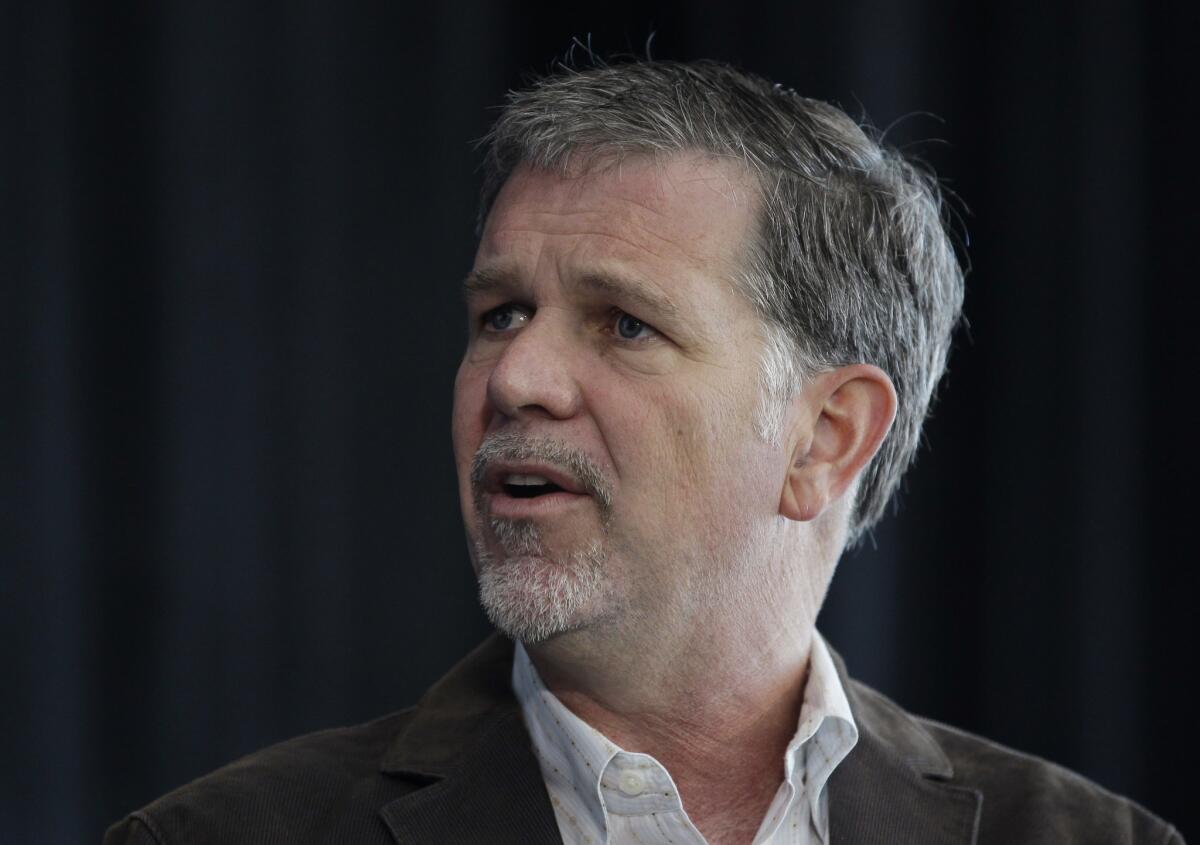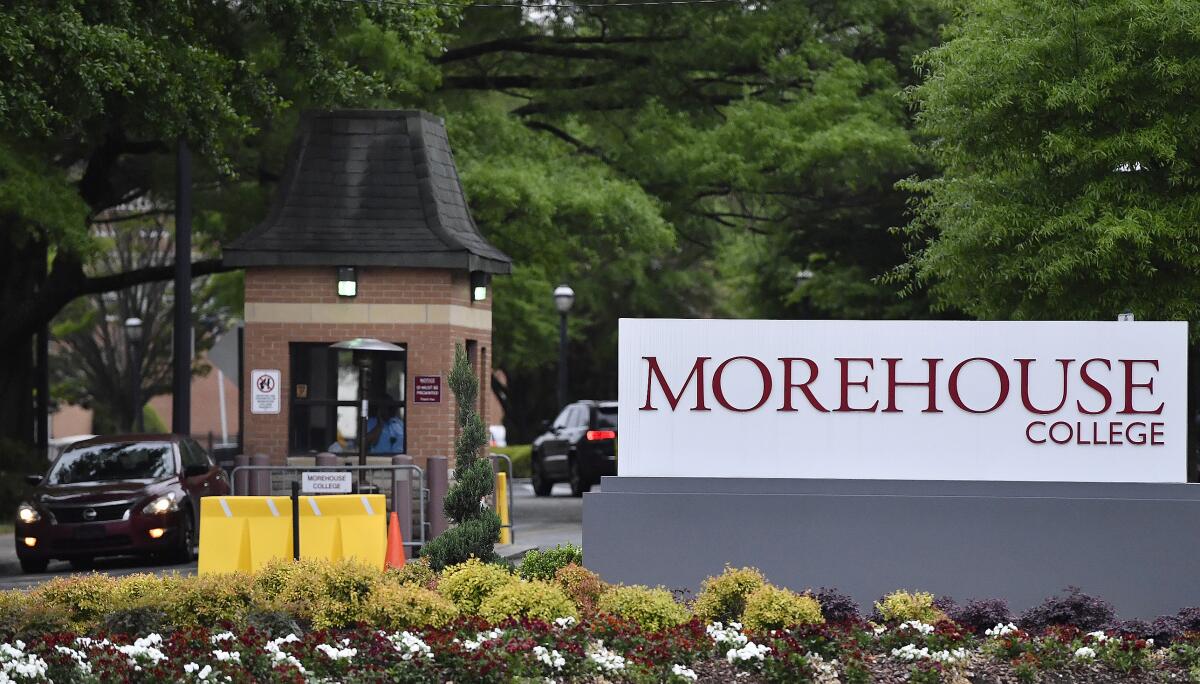Netflix CEO Reed Hastings donates $120 million to support historically Black colleges and universities

Netflix CEO Reed Hastings and his wife, Patty Quillin, announced Wednesday morning that they have given $120 million toward scholarships at historically Black colleges and universities — the largest individual donation to the institutions to date.
Spelman College, Morehouse College and the United Negro College Fund each received $40 million.
The two colleges, focused on educating women and men, respectively, are located in Atlanta. They are top producers of Black graduates receiving Fulbright scholarships and pursuing doctorates. The United Negro College Fund is a minority education organization that awards scholarships to more than 10,000 students each year and financially supports 37 historically Black colleges and universities.
Endowments at historically Black colleges and universities remain significantly lower than at comparable colleges. The median endowment for American historically Black colleges and universities is $15.7 million, compared with the median endowment of $36.8 million for non-HBCUs, a news release said.
Hastings attributes this to white people’s lack of understanding about the record of historically Black colleges and universities.
“Because there’s so much social isolation in America, there’s just less awareness in the white community — certainly in my community — of the role that HBCUs have played over the last 150 years,” said Hastings, who has a net worth of about $4.7 billion.
Hastings has been involved in education throughout his life. After graduating from Bowdoin College, he taught math in Swaziland through the Peace Corps. Since then, he’s financed a 1998 campaign to push for charter schools, provided start-up funding to the Aspire Public Schools charter network and served on the California Board of Education and KIPP Foundation.
He had donated to his alma mater in Maine but hadn’t considered giving to historically Black colleges and universities until he spoke with United Negro College Fund President Michael Lomax.
“He said, ‘Well, capital is isolated also, in addition to social [isolation]. So white people generally give to predominantly white institutions. It’s natural, but it’s not healthy. We need to do a better job of kind of getting to know each other and cross-investing,’” Hastings said.
The donation announced Wednesday is not Hastings’ first gift to benefit historically Black colleges and universities. In 2016, he created a $100-million Hastings Fund toward education, $1.5 million of which went toward the United Negro College Fund. He then foreshadowed the 2020 gift, posting on Facebook that “I hope to do more in the future.”
Morehouse College President David Thomas said the gift is powerful because Hastings and Quillin allocated it specifically toward scholarships.
The donation makes up nearly 10% of Thomas’ goal to reach a $500-million endowment. Now, he plans to raise the target amount.
Ideally, the endowment would be large enough so the college can admit students without considering their family’s economic status.

“We’ve done the calculations. To be where I want our college to be, which is need-blind, we need an endowment of roughly $1.2 billion,” he said.
Thomas hopes Hastings and Quillin’s donation will indicate to other high-income people that historically Black colleges and universities are worth investing in.
High rates of annual alumni giving (more than 35% at Spelman) have not been enough to overcome educational inequality. To reverse the inequity, more people must support HBCUs, a news release said.
Spelman President Mary Schmidt Campbell said scholarships relate directly to students’ success.
If not for a scholarship, the school’s 2020 valedictorian, Kendra Grissom, wouldn’t have been in the same position to help others, Campbell said. She was a mentor for 10 first-generation freshmen and sophomores. She’d tutor them, advise them about course selection and tell them about off-campus events. Now, she’ll pursue a doctoral program in history at Johns Hopkins University.
And if it weren’t for his scholarship, Los Angeles native Lomax said he may not have become president of the United Negro College Fund.
“In 1964, my mom, who was a journalist, decided to go back to the Deep South and cover the civil rights movement. I was going to be a senior at L.A. High. My only option was to go to Tuskegee Institute High School, which was a segregated school,” he said.
So his mother wrote to Benjamin Mays, the then-president of Morehouse. After looking at Lomax’s transcript, he offered Lomax a spot in a Morehouse program for high school seniors.
“I got a scholarship, a Charles E. Merrill early admissions scholarship, founded by the son of the man who created Merrill Lynch. And that $1,200-a-year tuition scholarship gave me the opportunity to get a Morehouse education, the most powerful education I’ve had in my life,” he said. “It has made all the difference.”
More to Read
Start your day right
Sign up for Essential California for news, features and recommendations from the L.A. Times and beyond in your inbox six days a week.
You may occasionally receive promotional content from the Los Angeles Times.







